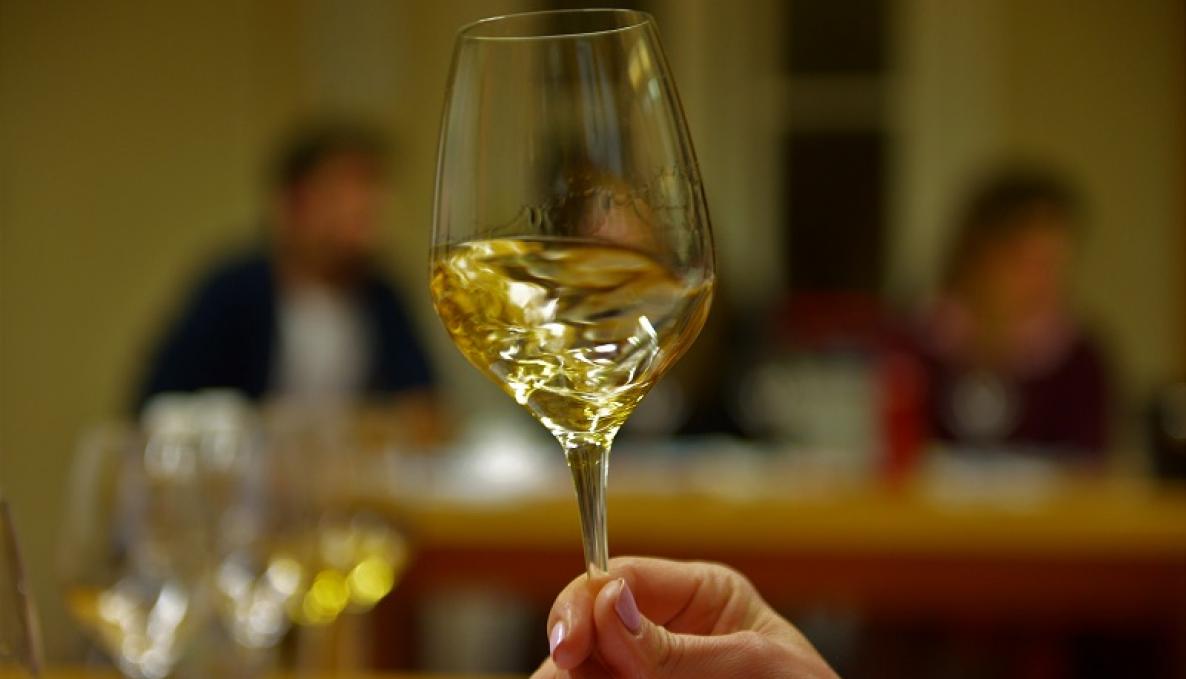"Vini Italiani e Mercati Mondiali": applications open for the first level master's diploma organized by Sant'Anna School together with University of Pisa, University for Foreigners of Siena, University of Siena, in collaboration with Ais

For the eighth edition, Tuscany's universities continue to train professionals in the international marketing and communication strategies of Italian wine: enrollment will be open until October 10 for the new (eighth, to be precise) edition of the first level master's diploma "Vini Italiani e Mercati Mondiali”, which has seen growing success over the years, especially due to the positive trend of job placement of those who have graduated. The master, organized by Sant'Anna School, together with the University of Pisa, the University for Foreigners of Siena, and the University of Siena, in collaboration with the Italian Sommelier Association (AIS), has accredited itself as the benchmark for higher education in the specific field of national wine production.
The participation of these universities reinforces the quality and breadth of the training proposal and confirms the interest of the university institutions of Tuscany in the professional path that this master provides, focused on national wine production. The employment level of course graduates has maintained high levels, thanks to the activation of professional relationships with companies in different Italian regions who collaborate on training activities, including through internships. The university consortium AlmaLaurea, in fact, reports an employment rate between 65 and 90 percent, within one year after graduation, among those who completed the master in the first five editions. Professional opportunities continue to be numerous and concern, in particular, national and international promotion activities for individual companies as well as for collective brands, marketing management and responsibility, event organization and management of wine tourism and corporate hospitality, activities and definition of communication strategies.
The master's program prepares a professional figure who, thanks to the knowledge of the principles of wine production, the mechanisms and tools of communication and marketing, as well as tasting techniques developed during the didactic activities, is able to operate in the sectors aimed at spreading the knowledge of Italian wines abroad, as well as their promotion and affirmation in global markets, considering both well established (such as the United States, Germany, the United Kingdom) and expanding markets (such as China, Korea, Russia, Brazil, Latin America), with a particular focus on "emerging" Countries (for example, India, Africa, Southeast Asia).
Those who graduate become specialists in topics concerning the knowledge of Italian wines, including tasting skills through the attainment, within the master, of the AIS sommelier diploma, the territories that produce them and the qualitative, cultural, socio-economic and commercial implications, techniques and modes of communication specific to wine products.
Who can attend. The master's program is addressed to first level graduates in viticulture and oenology, in agro-food, economics, communication and marketing disciplines or first- or second-level graduates in other disciplines relating to the professional profile to be trained, also in relation to the candidates' background and motivations. The application for admission is also open to undergraduates, who have completed their profit exams before the beginning of classes and who plan to acquire the admission qualification during the course's activities. It is possible to apply for participation in single modules or as auditors. Some lectures are held in English to facilitate the approach to international markets.
"The Italian vineyard continues to have important and growing numbers, representing one of the strengths of the national agrifood sector with a driving role for the entire economy", comments the director of the master's program, Pietro Tonutti, Professor of viticulture at Sant'Anna School. In the last 5 years, in addition to the consolidation in the role of world leader in wine production (in the 2021 grape harvest, Italy produced about 50 million hectoliters representing 19% of world production), Italy is observing an increase in the area planted with grapes, with a growing focus on native grape varieties and sustainable practices and management (of vineyard and cellar). Although wine consumption at the national level is capillary", Pietro Tonutti continues, "only about half of the national production is destined for domestic consumption, and it is essential to pursue policies and strategies to consolidate the positive trend of exports, which, in 2021 exceeded the 7 billion euro for the first time. European markets (Germany and the UK, but also, somewhat surprisingly, France) and the United States have maintained or increased import levels of Italian wines. Also China registered substantial increases in Italian wine imports. Some critical issues, however, have emerged in other Asian markets. The first months of 2022 are hopeful with estimated increases of about 20 percent compared to the same period in 2021".
"Wine exports", Pietro Tonutti goes on to say, "represent a key factor for the national wine scene with positive repercussions on other related areas as well, for example tourism, which is playing an increasingly powerful role in business strategies, and more general promotion of 'Made in Italy'. This is why there is a need to train professional figures capable of creating opportunities and developing new business dynamics, as well as to adequately and successfully spread knowledge of Italian wines, the numerous DOP ('Protected Designations of Origin') and the culture linked to wine traditions and different territories. To achieve this goal, it is necessary a strong complementation of viticulture-enology and marketing skills with those more strictly socio-cultural and communication skills to be integrated with those related to the study of the characteristics of markets - Pietro Tonutti concludes - and the types of consumption and international consumers".



